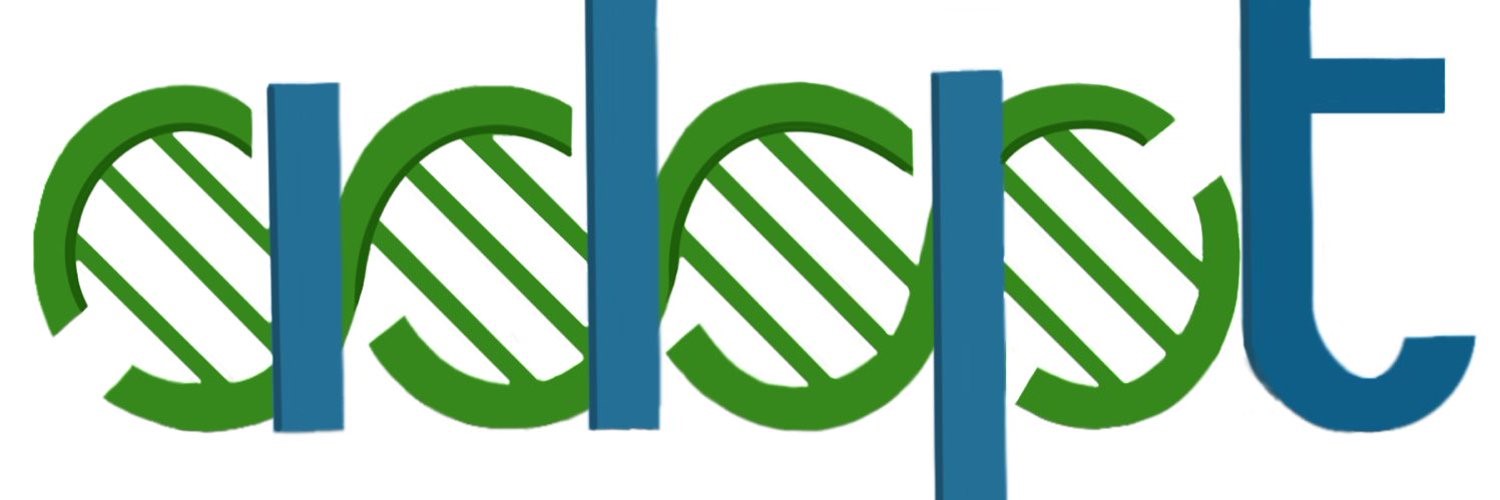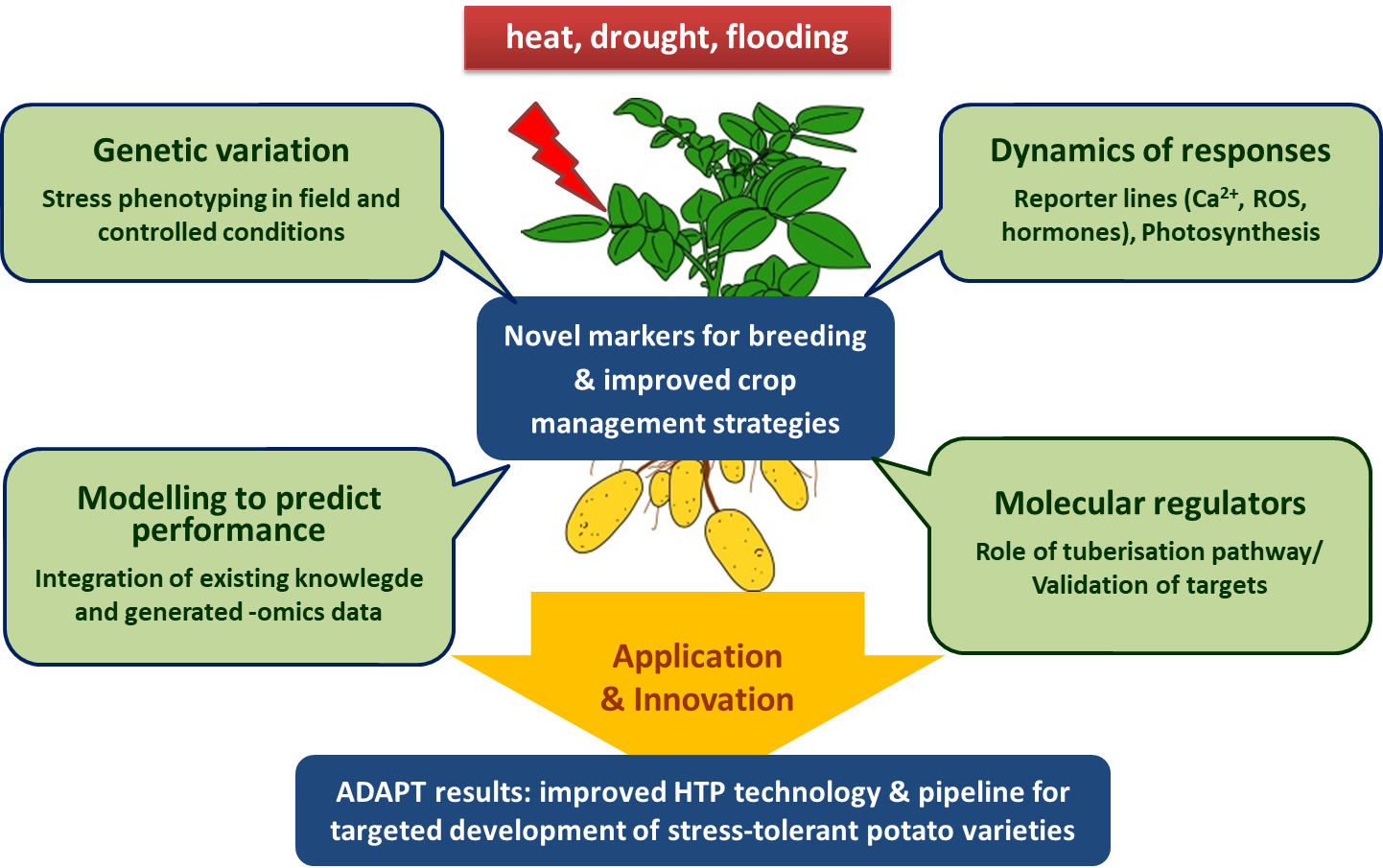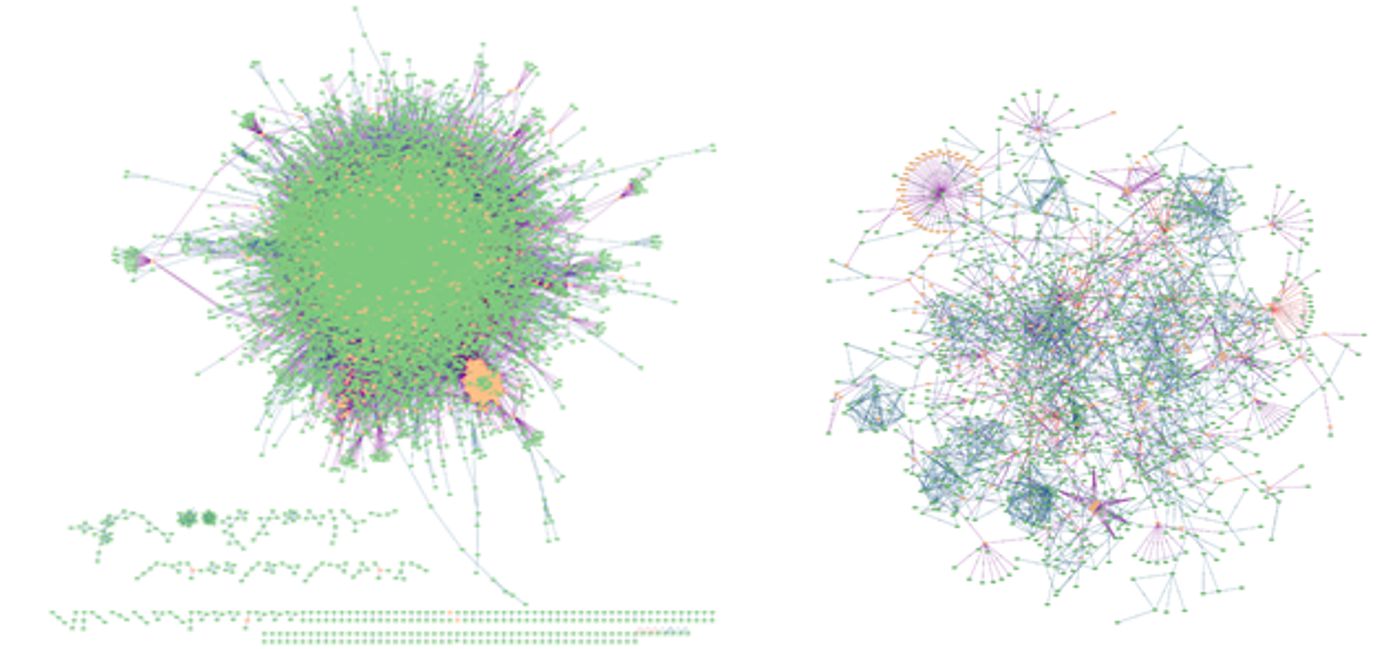Projects
The purpose of the investment project BTH-NIB is the assurance of the appropriate infrastructural conditions for the use of research and developmental opportunities in the fields of operation of the NIB.
Play Video About project Publication
ADAPT - Developing heat- and drought-stress tolerant potatoes
Project coordinator: Markus Teige
Coordinator for NIB: Kristina Gruden
Code: GA 862858
Duration: 1.07.2020-30.06.2024
The ADAPT project aims at identifying new breeding targets and matching potato varieties to specific challenging environmental growth conditions of the future and at developing new strategies to make potatoes fit for the challenging growth conditions of the future.

Potato is one of the most important food crops worldwide. However, a major threat to tuber yield security for this staple food crop is its vulnerability to environmental stresses; particularly to combinations of heat and drought, which are becoming increasingly prevalent due to climate change. Often these conditions are also followed by seasonal flooding, which can ruin the entire harvest within a few days. Together with the breeders we will identify traits and genes that can enhance stress resilience in this very important food crop.
In the ADAPT project, the complementary expertise of ten leading academic research institutions, four potato breeders, a screening technology developer, a government agency and a non-profit EU association will come together to investigate the mechanisms underlying multi-stress resilience in potato. With this project we will determine the molecular and phenotypical responses to different stress conditions, which are becoming increasingly important for potato yield under the challenging growth conditions due to climate change.
Based on the understanding of the relationships between molecules and using modern methods of computer-assisted biology, we want to identify new markers for the targeted cultivation of stress-resistant potato varieties that can ensure stability even in the difficult climatic conditions of the future. It is very important that the members of the consortium include growers and representatives of farmers, because in this way the results will be available to the end users quickly and directly.
In the ADAPT project, NIB focuses on systemic plant biology and develops biological networks and computer models of the impact of environmental stress on potatoes to help find molecular targets for the cultivation of new resistant varieties. The first phase of StressKnowledgeMap was already lounched. StressKnowledgeMap is a web application enabling the standardised construction of an integrated knowledge network, as well as its interrogation and exploration. It merges existing knowledge on model species and potato molecular physiology into a large knowledge network. The StressKnowledgeMap presents a base for the development of other applications and data analysis pipelines of WP5 (data visualisation tools, potato ‘omics data analysis pipelines), which will allow integration of new and existing data and their advanced analysis and visualisation.

The Arabidopsis thaliana comprehensive knowledge network (AtCKN) (left) with 26.158 entities and 484.616 connections, and a smaller subset of AtCKN (right) showing different interaction types with different colours. (Networks viewed with Cytoscape.)
The main highlights of the project ADAPT
• The €5 million EU Horizon 2020 project is investigating how potatoes adapt to a range of environmental stressors, including increasing heat, drought and flooding.
• Objective: New starting points for the targeted breeding of stress-resistant potato varieties and identification of existing varieties that are particularly resistant to changing climatic conditions.
• The project consortium consists of ten leading European research institutions, potato breeders, a non-profit EU organisation, the Austrian Agency for Health and Food Safety (AGES) and a company developing automation technologies for the agricultural sector.
• Coordination: Prof. Markus Teige, University of Vienna; Slovenian partner: prof. Kristina Gruden, National Institute of Biology.
Visit the official project’s website (adapt.univie.ac.at) and Twitter account (@eu_Adapt) for more information and updates.
This project has received funding from the European Union’s Horizon 2020 Research and Innovation Programme under Grant Agreement No 862858


 Scope of NIB's accreditation is given in the Annex to the accreditation certificate and in the List of accredited methods for detection of GMOs and microorganisms – plant pathogens
Scope of NIB's accreditation is given in the Annex to the accreditation certificate and in the List of accredited methods for detection of GMOs and microorganisms – plant pathogens 
